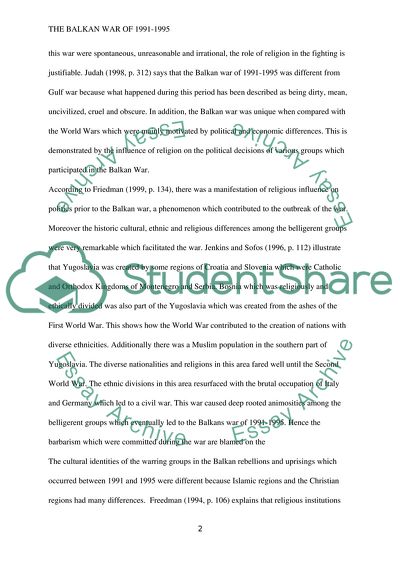Cite this document
(“The Balkan War Of 1991-1995 Essay Example | Topics and Well Written Essays - 1500 words”, n.d.)
Retrieved from https://studentshare.org/history/1584582-who-or-what-was-to-blame-for-the-outbreak-of-the-balkans-war-of-1991-1995-and-the-barbarism-committed-during-it
Retrieved from https://studentshare.org/history/1584582-who-or-what-was-to-blame-for-the-outbreak-of-the-balkans-war-of-1991-1995-and-the-barbarism-committed-during-it
(The Balkan War Of 1991-1995 Essay Example | Topics and Well Written Essays - 1500 Words)
https://studentshare.org/history/1584582-who-or-what-was-to-blame-for-the-outbreak-of-the-balkans-war-of-1991-1995-and-the-barbarism-committed-during-it.
https://studentshare.org/history/1584582-who-or-what-was-to-blame-for-the-outbreak-of-the-balkans-war-of-1991-1995-and-the-barbarism-committed-during-it.
“The Balkan War Of 1991-1995 Essay Example | Topics and Well Written Essays - 1500 Words”, n.d. https://studentshare.org/history/1584582-who-or-what-was-to-blame-for-the-outbreak-of-the-balkans-war-of-1991-1995-and-the-barbarism-committed-during-it.


